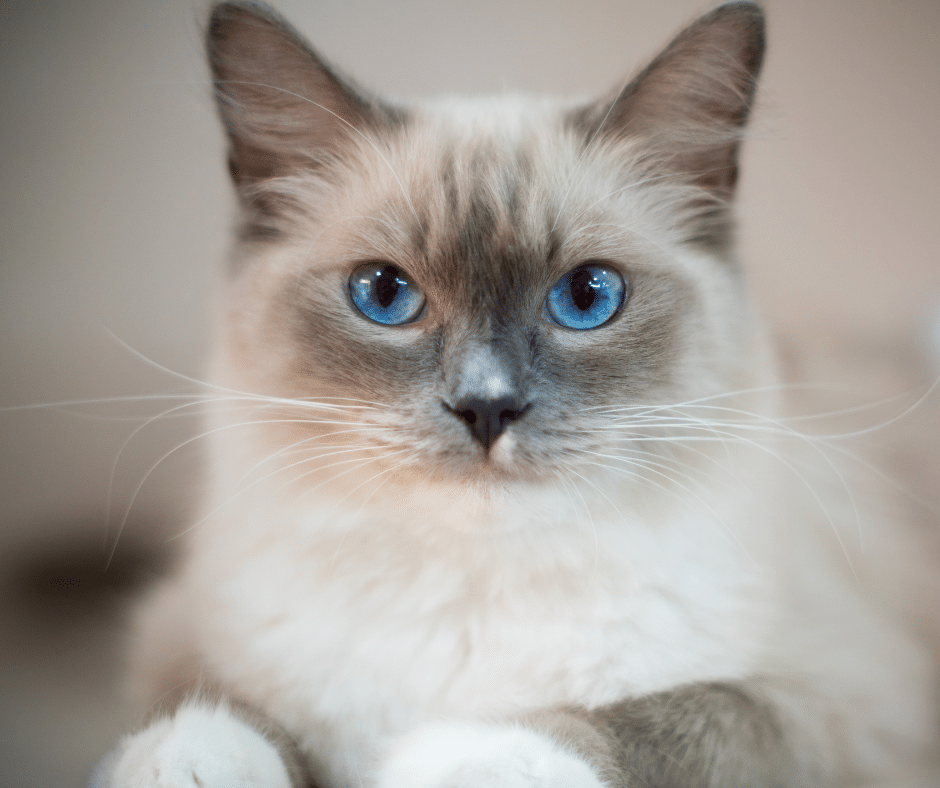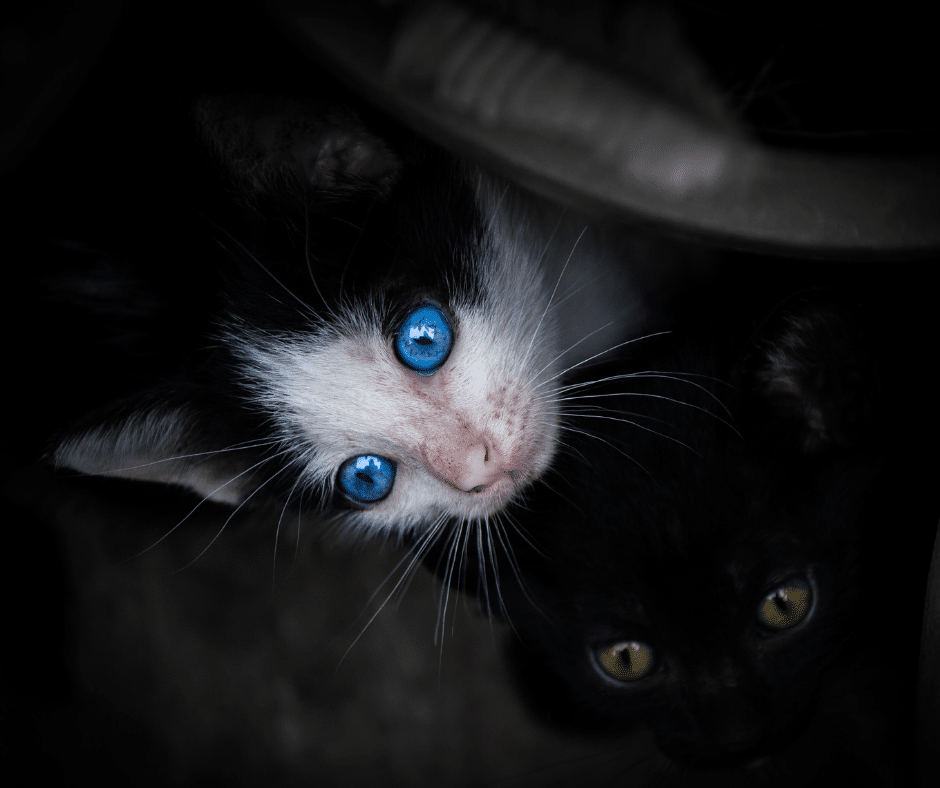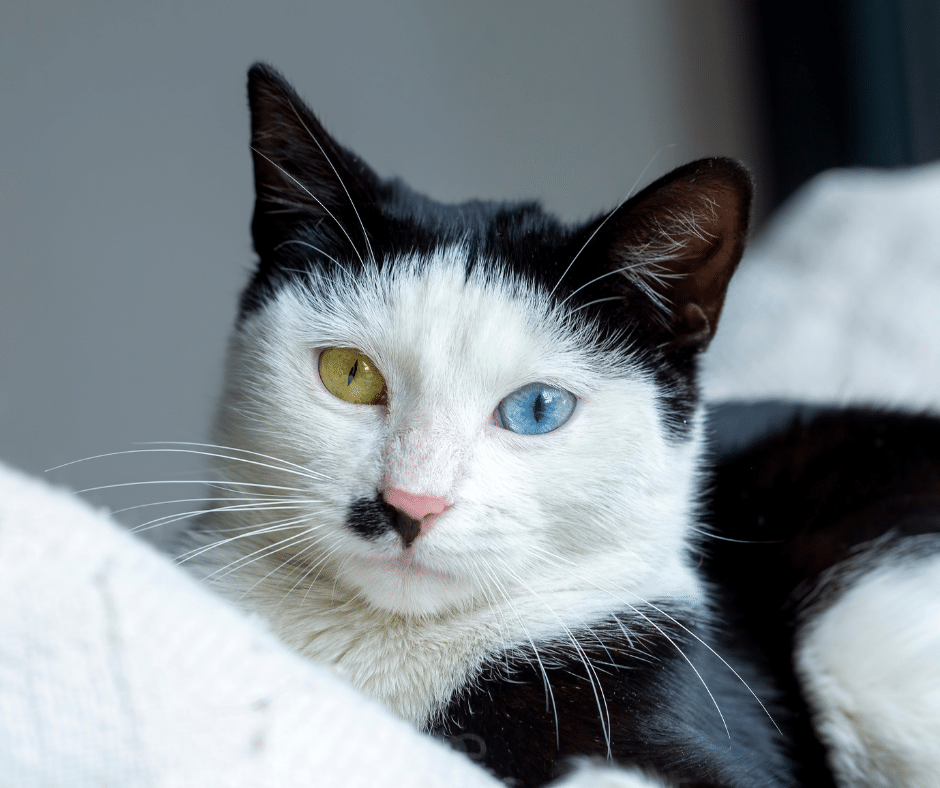The color of an animal’s eyes can be determined by factors such as their genetic makeup, the type of light in their environment, whether they’re defensive or aggressive, etc. However, some animals have blue eyes because they’re just plain lucky. Other species, including some animals with blue eyes, have them because of natural selection.

Blue eyes have been documented in many species, including lions, wolves, blue whales, and pandas. However, it’s thought that only about 5% of all animal species have blue eyes. What’s more, the gene that determines whether an animal has blue eyes is recessive. This means that to have blue eyes, you have to inherit two copies of the gene from your parents.
Let’s look at what makes some animals have blue eyes and why that’s the case.
A mutation in a gene
Understanding which genes are responsible for a certain trait can help explain why some animals have blue eyes. When offspring have an unusual trait, this can lead to a selective advantage for the parents and their offspring. This is how traits like Samson’s long locks and albinism come to be.

A mutation in another gene
Sometimes a mutation in one gene can result in another, sometimes more significant, gene mutation. For example, a mutation in the gene that produces the pigment melanin can cause a loss of function in a different gene called MC1R that produces the pigment copper-containing amine that’s responsible for the red color of mammalian hair and the claws and teeth of carnivores.
In this example, the mutation causes a change in the protein that the MC1R gene produces, which results in a lack of pigment and a change in the color of the hair and claws. This is how a blue mutation results in a red mutation.
More natural selection
Suppose a recessive trait is relatively common in a population and rare for an individual to have the dominant trait. In that case, the recessive trait can become more common in the population through natural selection.
For example, if something affects both parents who have the recessive trait, their offspring has a 50% chance of inheriting it. Over time, the recessive trait will become more common in the population.
This can also happen if the mutation that causes blue eyes occurs in the gene that determines eye color. If there’s no natural selection against blue eyes, then those with blue eyes will have more offspring than those with brown eyes. Over many generations, the gene for blue eyes will increase in frequency.

Inheritance of the recessive trait
Although most animals have blue eyes as a recessive trait, some have the gene that causes them to have brown eyes as a dominant trait. This means that if an individual has the gene for brown eyes, they’ll have blue eyes instead.
Inheritance of the recessive trait can also occur in cases of sex reversal, when an individual is born with both sex organs, XXY, and when a male fetus develops into a female.
Conclusion
Blue eyes are quite rare. Only about 5% of all animal species have them, which can be said for humans. You probably won’t see it coming in your family tree. However, a few animals have blue eyes because they’re just plain lucky. These species can be found in different locations and habitats, so they aren’t limited to just one area.
